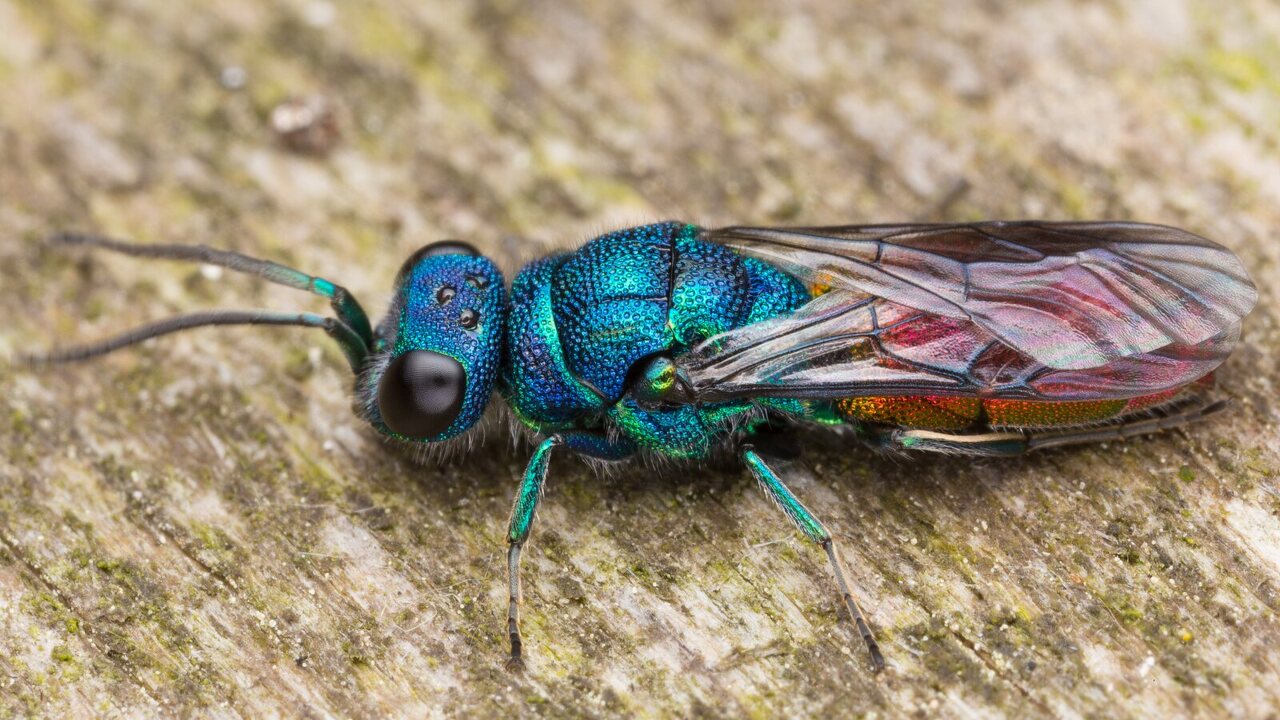
Chrysis angustula · auksavapsvė
det. Eduardas Budrys
- https://en.wikipedia.org/wiki/Chrysis_angustula
- Key to the Chrysididae of the Nordic and Baltic countries
This Trans-Palearctic species is widespread in most of Europe. southwestern Asia, Siberia and China. These wasps mainly occurs on wooded pastures, sparse forests, forest margins, clearings, gardens and parks, preferably with sun-exposed dead trees and stumps. They can be easily found also on walls of wooden buildings, old wood's doors, poles, log piles and dead tree trunks.
These relatively small cuckoo wasps are part of the difficult-to-determine Chrysis ignita complex, with more than ten similar species.
Similarly to other cuckoo wasps, they are brood parasites, laying their eggs in the nest or cavities of their host species, feeding on their larvae and on the food supply allocated to them. The hosts may be many different species of solitary wasps like Symmorphus bifasciatus.
‥